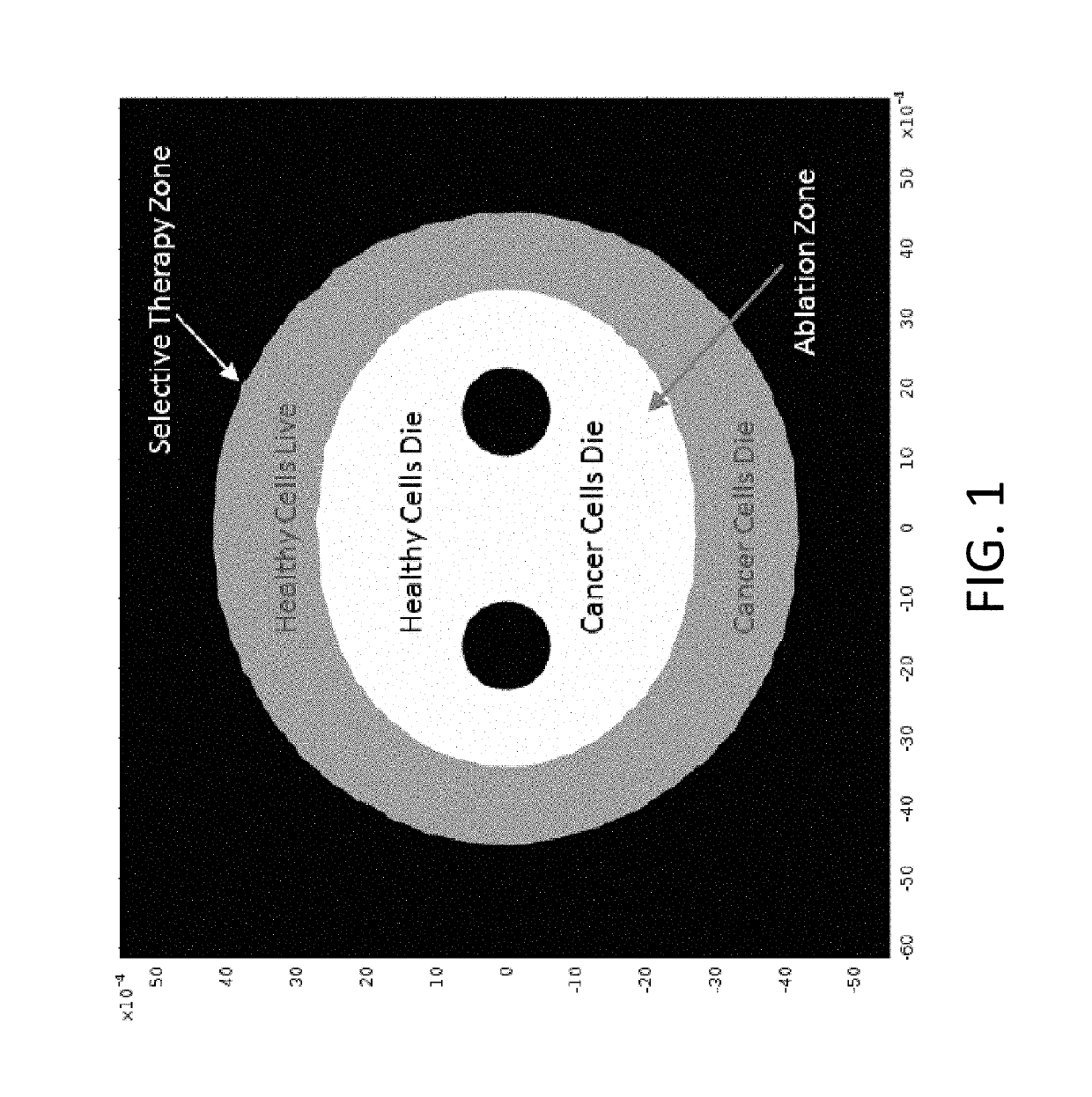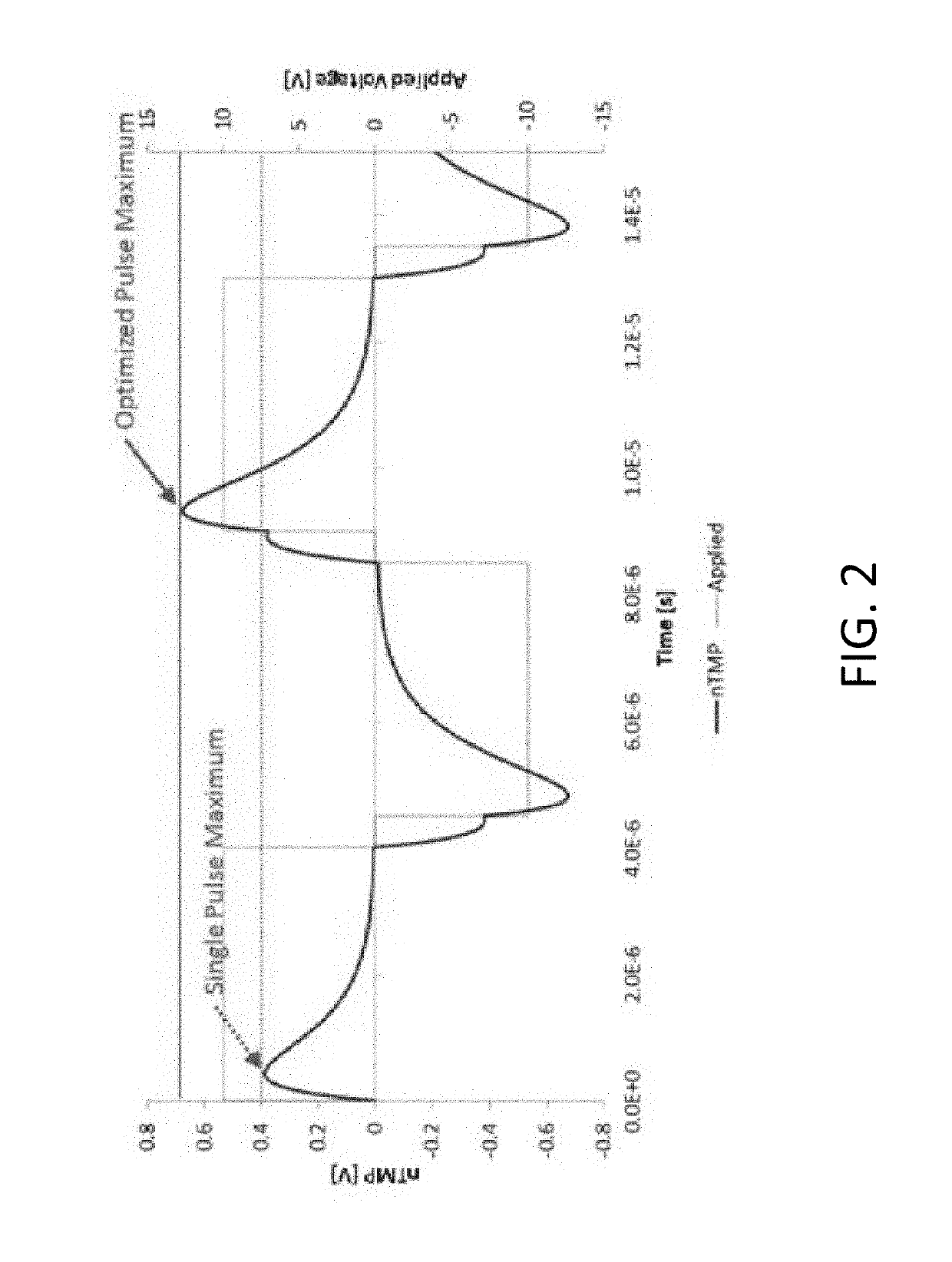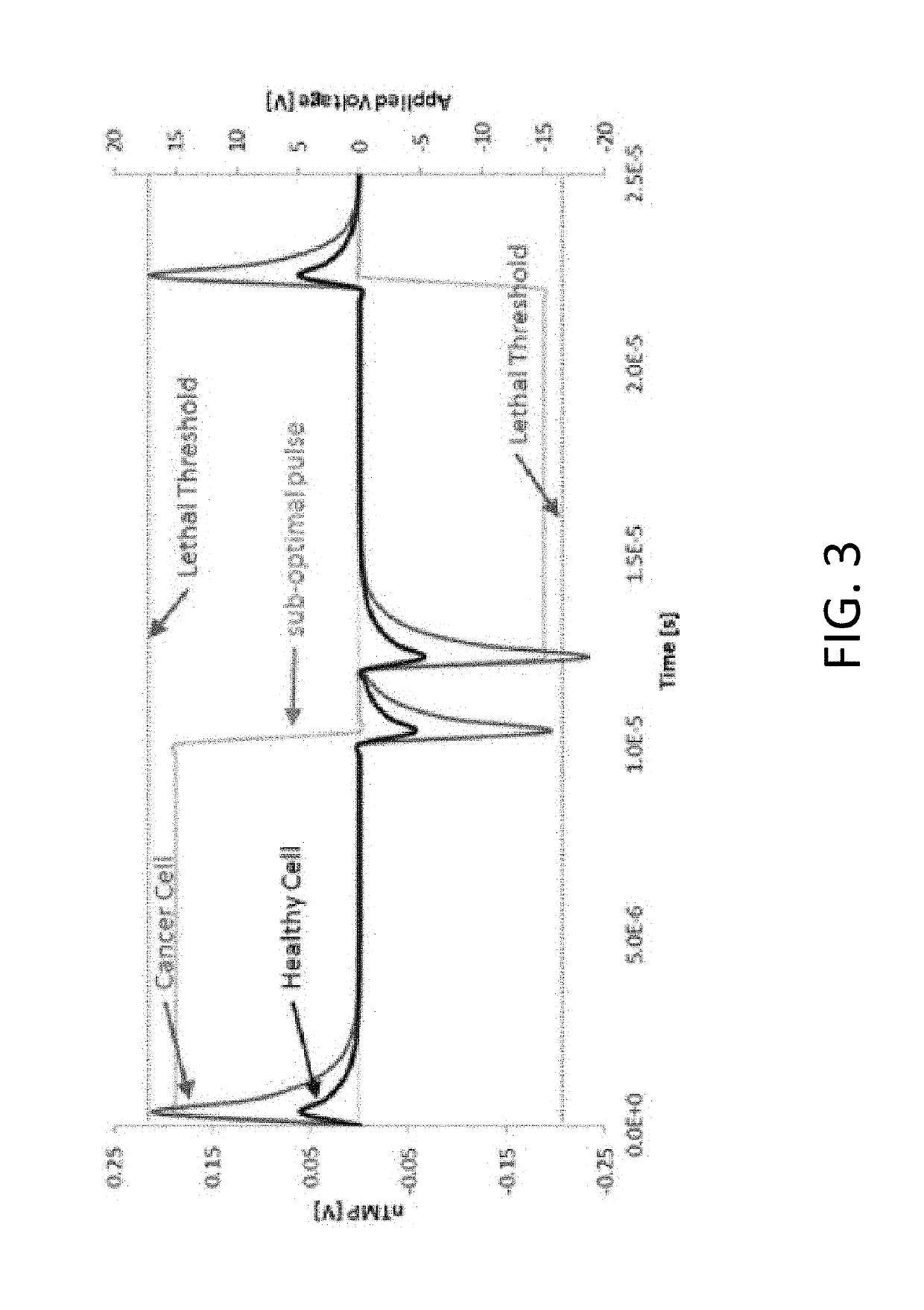Selective modulation of intracellular effects of cells using pulsed electric fields
a pulsed electric field and selective modulation technology, applied in the field of medical treatments, can solve the problems of reducing the effect of the pulse, and reducing the effect of the tumor, so as to enhance the ablation mechanism and enhance the intracellular effect of the pulse, the effect of minimizing the effect of healthy tissu
- Summary
- Abstract
- Description
- Claims
- Application Information
AI Technical Summary
Benefits of technology
Problems solved by technology
Method used
Image
Examples
example 1
[0179]A numerical model of a cell in suspension was created in Comsol 4.2a. Two schemes were used to model the cell as a membrane covered sphere. In the first model, individual domains were created representing the sample fluid (external to cell), cell membrane, and cytoplasm (internal to cell). The 5 nm thick spherical shell domain representing the cell membrane required significant modification to the default meshing parameters and resulted in a large number of tetrahedral elements. Briefly, the entire geometry was assigned a single mesh with a predefined density of ‘Extremely course’. The values for the default parameters were then changed for minimum element size (0.00025), maximum element growth rate (1.2), resolution of curvature (0.04), and resolution of narrow regions (0.0001) to successfully mesh the geometry with 817,184 tetrahedral elements. A computer with a quad core 3.0 GHz processor and 8 GB of ram required 15 hours of computation time to solve a 14 μs transient model...
example 2
[0216]Methods:
[0217]Numerical Modeling
[0218]A numerical model of a cell in suspension was created in COMSOL 4.2 using an impedance boundary condition scheme (G. Pucihar, T. Kotnik, B. Valič, D. Miklavčič, Numerical determination of transmembrane voltage induced on irregularly shaped cells, Annals of Biomedical Engineering, 34 (2006) 642-652). The solution domain consisted of a three dimensional cube with edge-lengths of 0.1 mm. At the center of this domain, two spheres were created representing the cytoplasm and nucleoplasm. Within the solution domain, the Electric Currents module was used to solve for following equations:
[0219]∇·J=Qj / (A / m3)[1]J=(σ+ɛ0ɛr∂∂t)E / (A / m2)[2]E=-∇U / (V / m)[3]
[0220]where U is the electric potential, E is the electric field, J is the current density, and Q is the current source. One boundary was assigned a time dependent electrical potential
U=U(t) / V [4]
[0221]The opposing boundary was assigned as the relative ground
U=0V [5]
[0222]The remaining boundaries were...
example 3
[0276]Materials and Methods
[0277]Collagen Hydrogel Tumor Mimics
[0278]PPT8182 murine primary pancreatic tumor cells (von Burstin, 2009), shown to replicate human pancreatic cancer in terms of histology, metastasis, and genetic alterations (von Burstin, 2009; Seidler, B., et al. A Cre-loxP-based mouse model for conditional somatic gene expression and knockdown in vivo by using avian retroviral vectors. Proceedings of the National Academy of Sciences 105, 10137-10142 (2008); Saur, D., et al. CXCR4 expression increases liver and lung metastasis in a mouse model of pancreatic cancer. Gastroenterology 129, 1237-1250 (2005); PaszeK, M. J., et al. Tensional homeostasis and the malignant phenotype. Cancer cell 8, 241-254 (2005); and Szot, C. S., Buchanan, C. F., Freeman, J. W. & Rylander, M. N. 3D in vitro bioengineered tumors based on collagen I hydrogels. Biomaterials 32, 7905-7912 (2011)) were used in the 3D tumor platform experiments. Cells were cultured in Dulbecco's Modified Eagle Medi...
PUM
 Login to View More
Login to View More Abstract
Description
Claims
Application Information
 Login to View More
Login to View More - R&D
- Intellectual Property
- Life Sciences
- Materials
- Tech Scout
- Unparalleled Data Quality
- Higher Quality Content
- 60% Fewer Hallucinations
Browse by: Latest US Patents, China's latest patents, Technical Efficacy Thesaurus, Application Domain, Technology Topic, Popular Technical Reports.
© 2025 PatSnap. All rights reserved.Legal|Privacy policy|Modern Slavery Act Transparency Statement|Sitemap|About US| Contact US: help@patsnap.com



